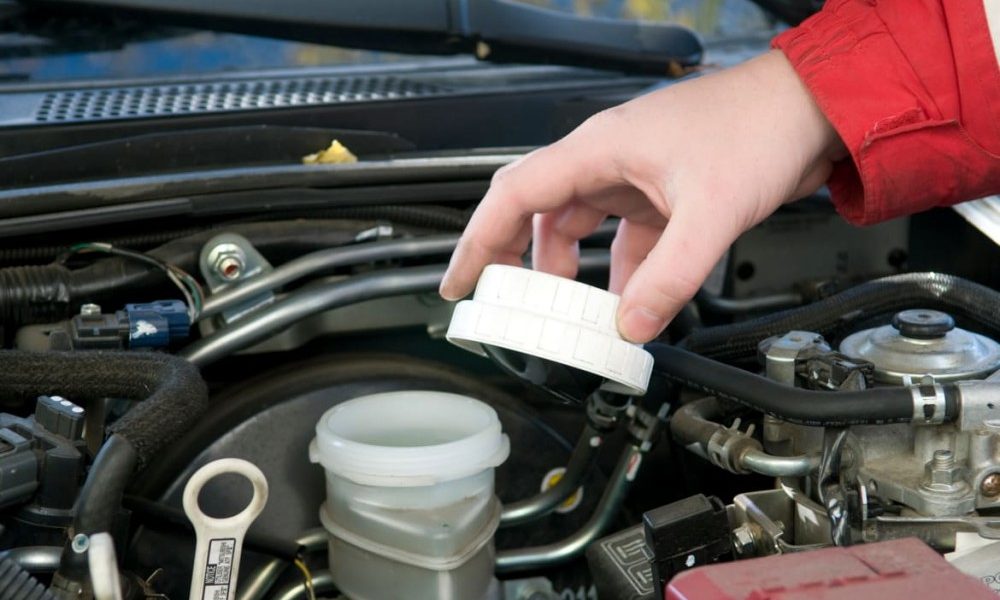Indeed it can, and you might not be able to tell if it has just by looking.
Most cars have see-through reservoirs for brake fluid under the hood so that owners can check at a glance to make sure it’s at the proper level. That, however, tells you nothing about the condition of the fluid.
Brake fluid absorbs water over time, particularly in areas with high humidity, when moisture seeps through rubber hoses and seals. Water reduces the boiling point of brake fluid, and in situations that put high demands on your brakes — such as mountain driving, towing or making repeated hard stops — the fluid can become so hot that it impairs stopping ability or causes temporary loss of braking power.
Because of this, some manufacturers recommend changing your brake fluid as often as every two years. Others have longer intervals, and some make no recommendation about changing brake fluid. Owners should consult their car’s owner’s manual to see what the manufacturer recommends. If you’re unsure what to do, consult a repair shop and ask them to test your brake fluid.
One sign that your brake fluid is contaminated with water is that your brake pedal will have more travel than normal; that could also be a sign that your fluid level is low, the brake pads are worn or there’s air in your brake lines. Because the same symptom can suggest a variety of issues, having a trusted mechanic perform a thorough diagnosis is your best course of action. Seasoned mechanics can usually tell if fluid needs changing, as it will be dark and murky; if in doubt, ask your mechanic for more proof than an eyeball test.
Though some repair shops use maintenance or repair visits as an opportunity to sell additional services, that doesn’t mean you should dismiss a sales pitch for fresh brake fluid. In addition to affecting brake performance, water in the brake fluid can also cause corrosion over time. Down the road, you may need to replace rusted components in your brake system.
The bottom line is: When it comes to brakes, it’s better to be safe than sorry.



Leave a Reply